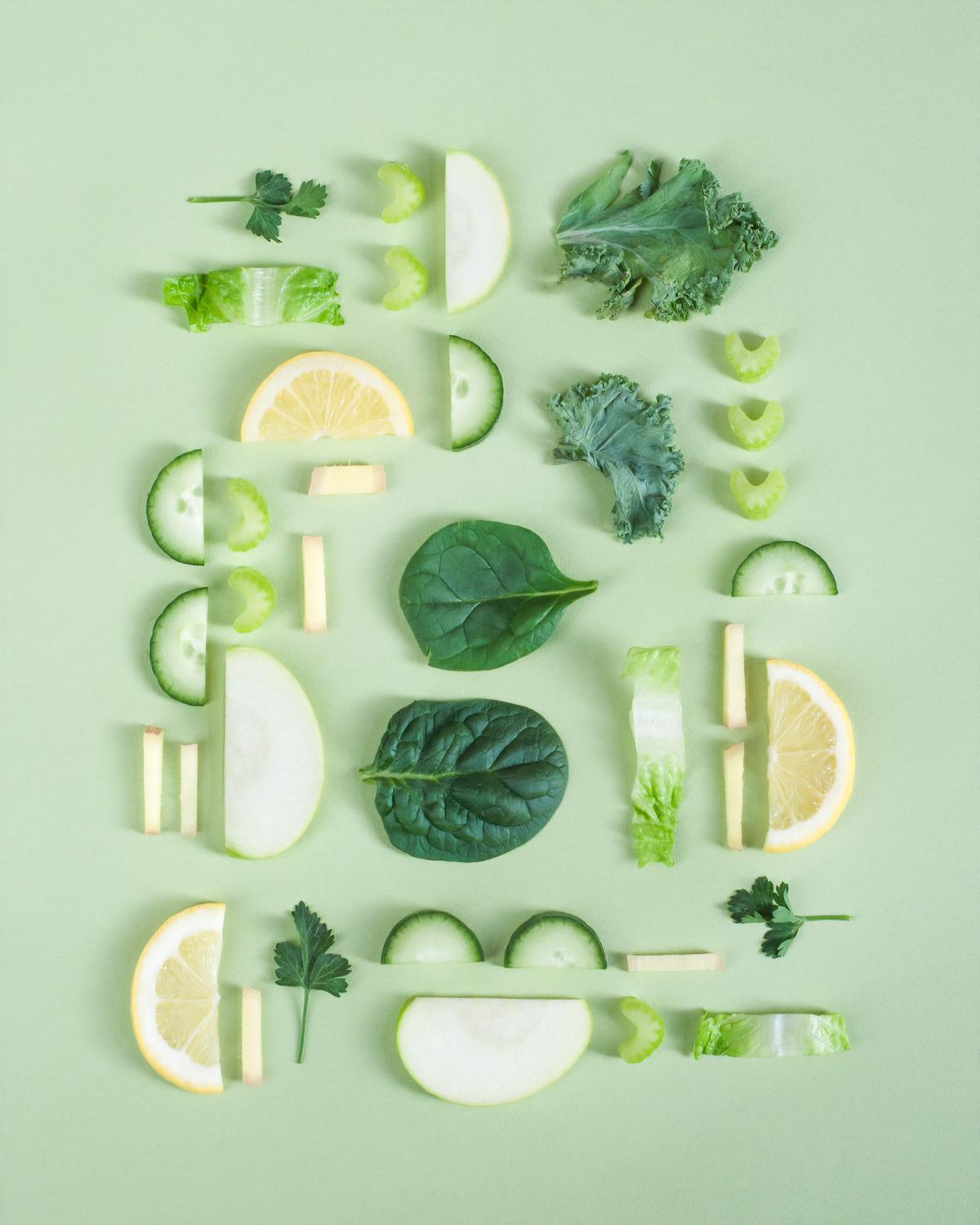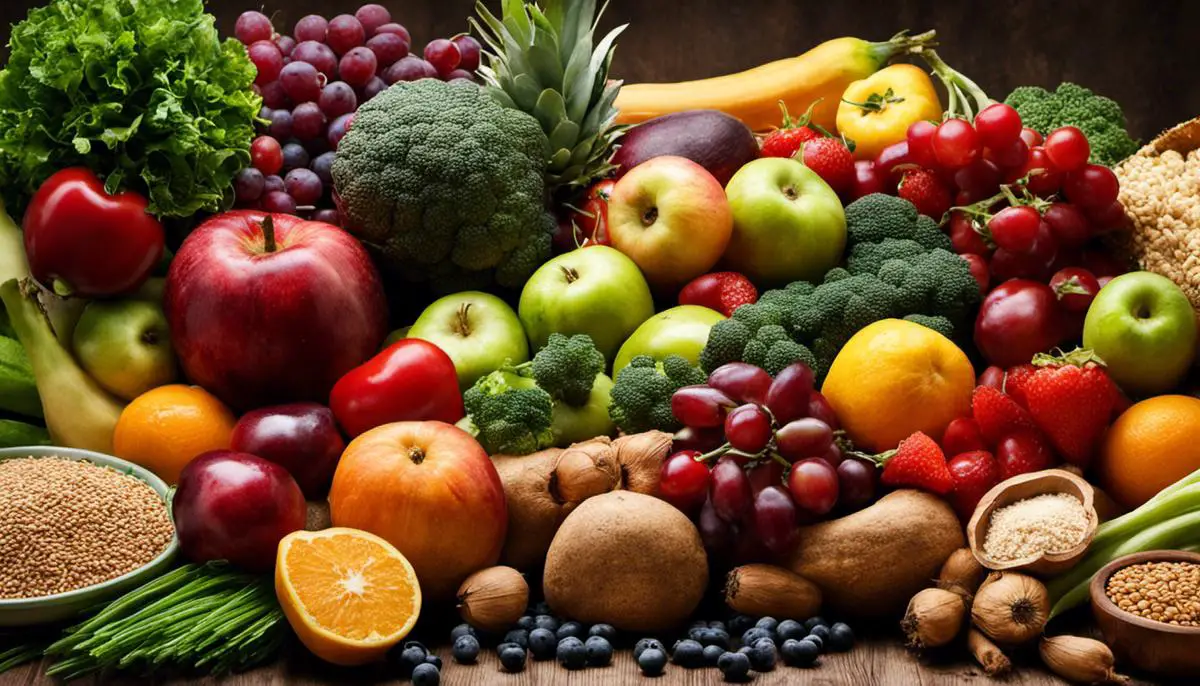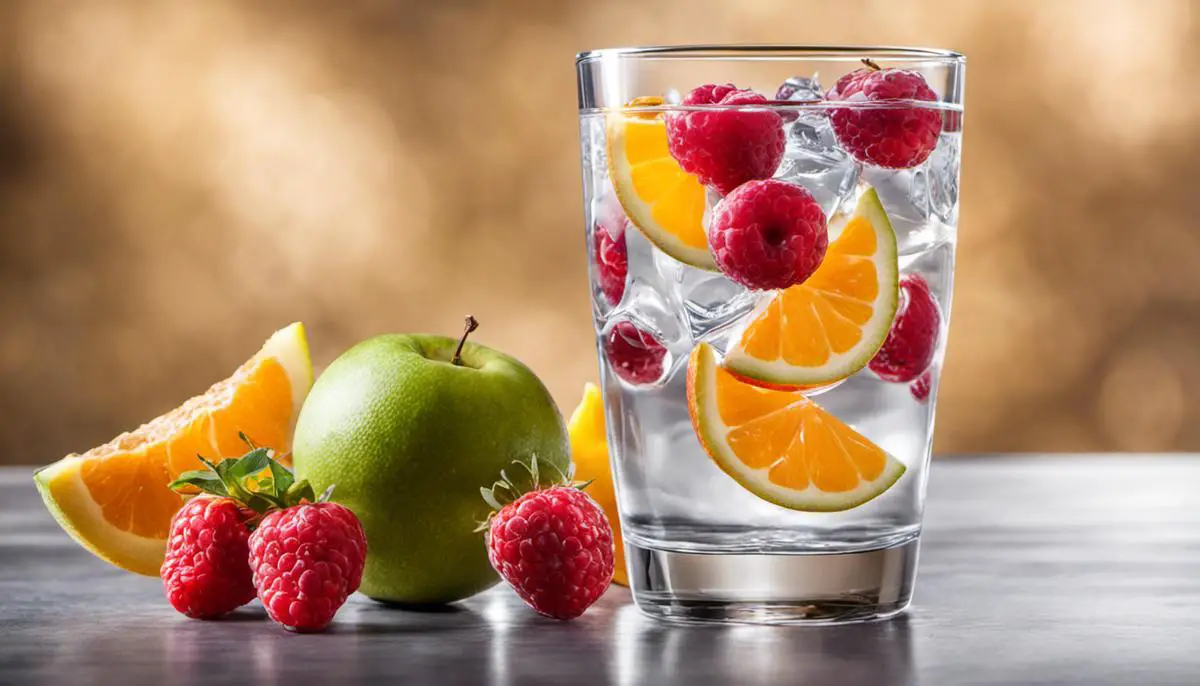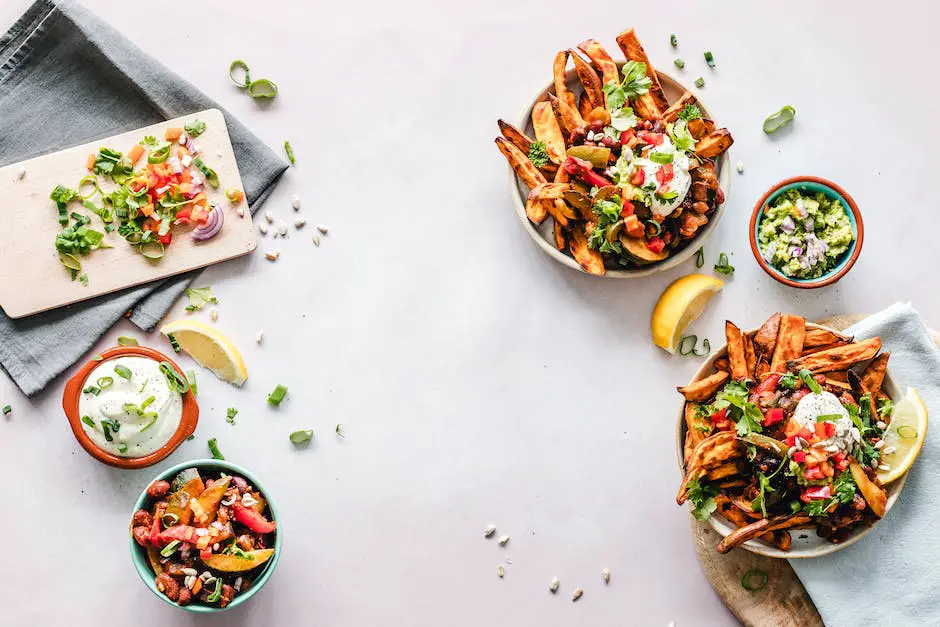Constipation is a common gastrointestinal issue that many people experience, frequently due to their dietary habits and lifestyle. It is an issue that’s intricately linked to the selection of foods that we consume, the hydration levels we maintain as well as the balance in our meal planning. According to medical understanding, certain foods and lifestyle patterns tend to slow down digestion or stiffen the stools, thus leading to constipation. Familiarizing oneself with these foods and understanding their impact on our digestive system is key to preventing and alleviating this condition. This knowledge also extends to understanding dietary fibers – their types, role, and the right quantity for daily intake. Furthermore, maintaining hydration and planning balanced meals constitute significant components of a constipation-friendly lifestyle.
Understanding Constipation
Understanding Constipation: A Widespread Digestive Problem
Constipation is a common condition involving the digestive system where an individual has hard feces that are difficult to expel. It usually occurs when waste or stool moves too slowly through the digestive tract or fails to be eliminated from the rectum, which can cause the stool to become hard and dry. Chronic constipation has many possible causes, including an insufficient fiber or fluid intake, a sedentary lifestyle, and some medications or health conditions.
The Influence of Diet on Constipation
Our diet plays a significant role in the regular functioning of our digestive system, which includes bowel movements. Consuming a diet low in fiber may contribute to constipation. Fiber-rich foods, including whole grains, fruits, and vegetables, help soften stool so it can move smoothly through the digestive system. Foods like bread, pasta, and snacks often contain refined grains which lack fiber whereas processed foods can also be low in fiber and high in fats and sugars, leading to constipation.
Lifestyle Habits and Constipation
Beyond diet, certain lifestyle habits can also contribute to constipation. Sedentary behavior, such as sitting for extended periods, can increase the risk of constipation. Drinking alcohol or caffeine in excess can cause dehydration, leading to a dry and hard stool. Ignoring the urge to have a bowel movement can also lead to constipation for some people, as it lets the stool harden in the colon.
Individual Differences in Handling Foods
While certain foods are universally known to cause constipation, the way individual bodies react to these foods can vary greatly. Some people might be more sensitive to certain foods and might experience constipation even with minimal consumption. This can be due to an inherent condition like Irritable Bowel Syndrome (IBS) or food intolerance such as lactose intolerance. Moreover, age, sex, and genetics also play a role in determining bowel movement patterns and susceptibility to constipation.
Understanding Foods That Cause Constipation
The most commonly recognized constipating foods include dairy products, red meat, fried or fast foods, pastries, and chips. Dairy products like cheese and milk can slow digestion and cause constipation. Red meat may increase the risk of constipation as it is rich in fat and low in fiber. High-fat, low-fiber foods like fried or fast food can delay stomach emptying and slow down digestion, leading to a higher risk of constipation.
Remember, every individual reacts differently to different types of food and what might cause constipation in one person may not have the same effect on another. Therefore, understanding your body’s reactions to various foods and adjusting your diet accordingly is the most effective way to manage and prevent constipation.

Photo by dosejuice on Unsplash
High-Fiber Foods
Understanding Fiber and Its Role in Digestion
Fiber, often referred to as dietary fiber, is a complex carbohydrate that our bodies cannot digest. Despite being indigestible, it plays a critical role in maintaining good digestive health by softening the stool, making it easier to pass, which can prevent or alleviate constipation. Dietary fiber is divided into two broad types: soluble and insoluble fiber. Soluble fiber attracts water and forms a gel, which slows down digestion and helps reduce cholesterol and glucose levels. Insoluble fiber, on the other hand, adds bulk to the stool and can aid in preventing constipation.
The daily recommended intake of fiber varies depending on age and sex. For men, it is recommended to consume 38 grams of fiber per day until the age of 50, after which it comes down to 30 grams per day. Women, on the other hand, should aim for 25 grams per day until the age of 50, and then 21 grams per day following that.
High-Fiber Foods
Plenty of foods are rich in fiber. Many fruits, vegetables, and whole grains contain a significant amount of fiber. Some high-fiber foods are:
- Pears: Along with being one of the most fiber-rich fruits, a medium-sized pear also provides a good amount of vitamin C.
- Broccoli: This green vegetable is not only rich in fiber but also a good source of vitamin K and vitamin C.
- Lentils: Lentils are not only high in fiber but they are also a good source of protein and can be easily added to various dishes.
- Chia Seeds: These tiny seeds pack a lot of fiber and can be easily added to smoothies, yogurt, or sprinkled over cereal.
- Oats: A bowl of oatmeal for breakfast is not only filling but also provides a good amount of fiber.
Incorporating High-Fiber Foods into Your Daily Diet
Ensuring a fiber-rich diet doesn’t have to be difficult or complicated. Here are some ways to incorporate high-fiber foods into your daily diet:
- Breakfast: Start your day with a bowl of oatmeal topped with fruits such as berries or bananas, or sprinkle chia seeds on your yogurt or cereal.
- Snacks: Fruits like pears, oranges, or apples make for easy, portable snacks. Nuts and seeds can also provide a good amount of fiber and can be conveniently carried around.
- Side dishes: Including a side of vegetables like broccoli, Brussels sprouts, or carrots with your meals can help increase your fiber intake.
- Lentils and Beans: Incorporate lentils or beans into your soups, salads, or stews.
While incorporating high-fiber foods into your diet, it’s also crucial to increase your water intake as fiber absorbs water. This helps the fiber pass through the digestive system more easily and prevent constipation effectively. Regular exercise can also promote good digestion.
Please note that it’s always important to speak to a healthcare provider or nutritionist before making any significant changes to your diet, particularly if you have any health conditions or dietary restrictions.

Hydration Health
Understanding the Role of Water in Promoting Digestive Health
Water plays a crucial role in digestive health and serves as a medium for various enzymatic and chemical reactions in the body. It aids in digestion and absorption of nutrients by breaking down food, making it easier for the body to process. Furthermore, water acts as a lubricant in the digestive tract, helping to ease the passage by adding bulk to the stool.
Daily Water Intake
Research indicates that an individual’s ideal water intake may vary based on factors such as age, gender, weight, and activity level. The National Academies of Sciences, Engineering, and Medicine suggest a daily water intake of 3.7 liters (or about 13 cups) for men aged 19 years and older, and 2.7 liters (or about 9 cups) for women aged 19 years and older. This is not limited to only water and can include other beverages and food as well. However, constant hydration throughout the day aids better in the prevention of constipation than intake at a specific time.
Water and The Prevention of Constipation
Prevention of constipation involves a number of factors including regular physical activity, a fiber-rich diet, and significant fluid intake. Water softens the stool and helps in moving it smoothly through the colon. Differences in hydration status can significantly affect the body’s efficiency to pass stool.
Hydration through Fruits, Vegetables, and Certain Beverages
Aside from water, there are other hydrating substances that offer additional benefits. Many fruits – like watermelon, strawberries, and peaches – and vegetables – such as cucumbers, lettuce, and zucchini – are significant sources of water and can contribute to the overall hydration. They also provide dietary fiber that aids in the prevention of constipation.
Certain beverages like fruit juices, herbal teas, and clear broths can also contribute to hydration. However, one should be cautious with beverages that can be dehydrating, such as coffee and alcohol. Despite being liquid, they can actually decrease the water content in your bowel movements, making them harder and potentially leading to constipation.
Hydration is key to proper digestion and preventing constipation. Make sure to consume adequate water and include hydrating foods and beverages in your diet plan. The right balance of hydration along with a balanced diet and regular exercise can help maintain a healthy digestive system.

Planning Balanced Meals
Understanding Nutrition and Constipation
To address constipation, it is crucial to understand the role of nutrition. A diet balanced with all essential nutrients is necessary. These nutrients include fibers, proteins, carbohydrates, fats, and vitamins and minerals. When it comes to constipation, the focus often shifts towards dietary fiber and hydration, but a balanced diet plays a crucial role as well.
The Importance of Dietary Fiber and Hydration
For constipation, dietary fiber is essential. It helps to bulk up the stool and helps it move easily through your digestive system. Foods high in fiber include fruits, vegetables, whole grains, and legumes. Hydration is equally vital; water forms the basis for your body’s digestive fluids and helps keep things moving smoothly. Increasing your fluid intake by drinking more water and other hydrating fluids like herbal teas and fruit-infused waters can help alleviate constipation.
Balancing Proteins, Carbohydrates, and Fats
Proteins, carbohydrates, and fats are all essential parts of a healthy diet. Proteins are needed for repair and growth, carbohydrates provide energy, and fats help your body absorb vitamins. For an anti-constipation diet, choose lean proteins like chicken, turkey, and fish which are easier to digest. Complex carbohydrates, such as whole grains, are also beneficial as they provide fiber. Healthy fats come from sources such as avocado, nuts, and seeds which contribute to the smooth movement of stool through the digestive system.
Planning Balanced Meals for Constipation
When planning meals to combat constipation, consider incorporating a variety of high fiber foods into each meal. Start your day with a high fiber cereal or whole grain toast. For lunch, consider a salad brimming with various vegetables. Dinner could include grilled chicken or fish paired with whole grain side dishes and colorful vegetables. Snacks can be fruits rich in fiber like apples, pears or berries, or nuts and seeds for added healthy fats.
Researching Meal Preps and Professional Advice
There are several resources to assist you in planning your meals for a constipation-friendly diet. Researching meal preps online can provide a plethora of ideas on meals that are high in fiber, adequately hydrating, and provide a balance of proteins, carbs, and fats. Furthermore, professional nutritionists and dietitians often share advice on diet plans catering to specific health issues like constipation. Exploring these resources can help tailor your diet to effectively address constipation.
The Role of Physical Activity in Digestion
Last, alongside your balanced diet, don’t overlook the role of physical activity for smooth digestion. Regular physical activity helps stimulate your intestines and can improve symptoms of constipation.
Remember, it’s crucial to listen to your body’s needs and consult with a healthcare professional before making significant changes to your diet. Each person’s body is unique, and it’s key to find what works best for yours.

Constipation may be a common concern, but a proactive approach to diet and lifestyle can render it preventable and manageable. High-fiber foods, sufficient hydration, and balanced meals are powerful tools we have at our disposal. As we arm ourselves with the knowledge of what causes constipation and the foods that can help to prevent it, we become better equipped to make healthier, more informed decisions about our diet and lifestyle. The variety of foods that are both nutritious and capable of improving our digestive health is vast and learning to incorporate them into our daily routine is not only beneficial for preventing constipation but also for promoting overall health. The role of hydration, especially water, cannot be understated, as it lubricates the fiber to provide seamless digestion. And lastly, balanced meals ensure that we meet all of our nutritional needs. In essence, managing constipation and improving our digestive health is in our hands, through our forks and our glasses.
